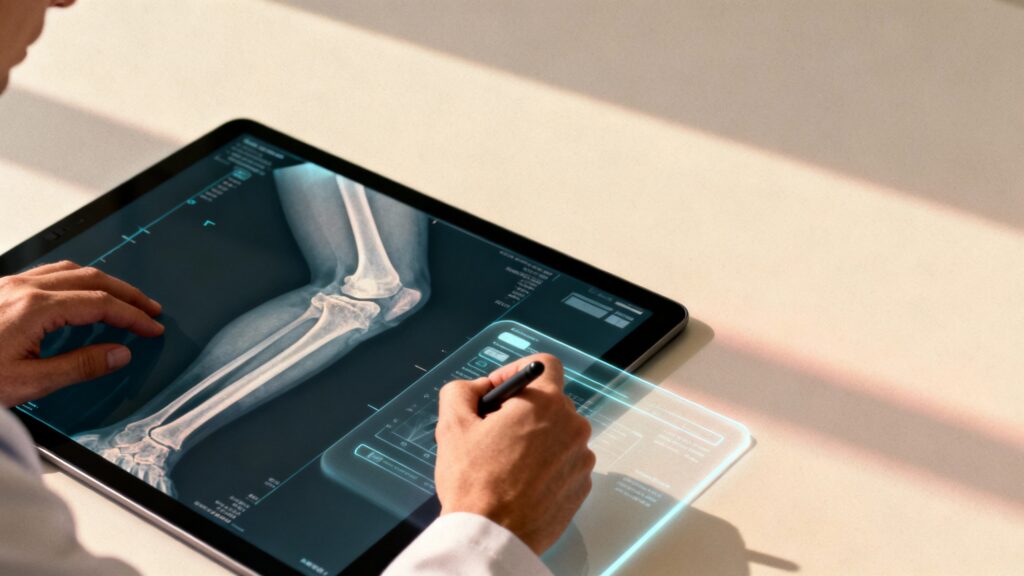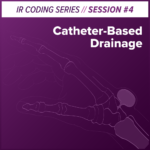Whenever the topic of coding and billing for RT services comes up it’s only a matter of time before discussion turns to “it.” The one code that, no matter how the conversation begins, always ends up as a discussion topic. It’s always on the radar for RT services. It’s unclear. It generates a lot of questions. Simply put, it’s just confusing. CPT® code 94640 – a thorn in the side of many RT departments.
Let’s try to clear up some of the common questions surrounding code 94640 and rid ourselves of the thorn.
The Basics
94640 Pressurized or nonpressurized inhalation treatment for acute airway obstruction for therapeutic purposes and/or for diagnostic purposes such as sputum induction with an aerosol generator, nebulizer, metered dose inhaler or intermittent positive pressure breathing (IPPB) device
Revised in 2016 to clarify that this is a bunded code representing both diagnostic and therapeutic services, code 94640 includes different modes of treatment including aerosol generator, nebulizer, metered dose inhaler (MDI), or intermittent positive pressure breathing (IPPB) device. This code should not be reported for routine nebulizer or MDI treatments for patients with unrelated conditions. Instead, this code is appropriate when documentation indicates the treatment is administered to a patient with an acute airway obstruction. Additionally, this code is to be reported for the induction of sputum for diagnostic purposes.
Episode of Care
An episode of care begins when a patient arrives at a facility for treatment and terminates when the patient leaves the facility.
Translated to an observation stay, where a patient is possibly there for multiple days of service, this is still one episode of care. The clock does not ‘re-start’ each calendar day, it is one continuous episode of care. For observation stays, the documentation of start and stop times for individual inhalation therapy treatments is very important – more on that below.
Instructions in the latest NCCI Policy Manual for Medicare Services state that 94640 is reportable once per episode of care (including episodes of care lasting more than one calendar day) regardless of the number of treatments administered. The NCCI Manual goes on to say that if a patient leaves the facility and comes back on the same date of service for additional treatment, this second episode of care may be reported with modifier 76 appended to code 94640.
However, the current MUE value for code 94640 is listed as 1 if billed on a hospital claim, which contradicts language in both the CPT Manual and the NCCI Policy Manual. This MUE indicates that it would be inappropriate for a hospital to bill for more than one episode of care per date of service.
Continuous Inhalation Therapy
94644 Continuous inhalation treatment with aerosol medication for acute airway obstruction; first hour
+94645 Continuous inhalation treatment with aerosol medication for acute airway obstruction; each additional hour (List separately in addition to code for primary procedure)
Codes 94644 and 94645 for continuous inhalation therapy treatments are defined by 60-minute increments of time. The medical record must support that a minimum of 60 minutes of therapy was provided in order to bill using code 94644, and that an additional 60 minutes of therapy was provided in order to report add-on code 94645.
The guidelines do allow for the billing of multiple, individual treatments using the continuous therapy code 94644. This is where, as mentioned above, documentation of start and stop times for the individual treatments is critical. The total time of each individual therapy session must add up to the minimum 60-minute requirement. If the total therapy time does not add up to a minimum of 60 minutes, or if the start and stop times are not documented, it would not be appropriate to bill 94644 – code 94640 would be reported instead.
Billing of both 94640 and 94644/94645 for the same episode of care is not appropriate, only one or the other is allowed.
Stay Informed
It’s always crucial to stay up to date with the latest guidelines for coding and billing. For this topic specifically, with its discrepant guidance, it’s even more important. Keep an eye on the quarterly updates to MUE values from CMS. Plus, make sure you have the most current resources on hand with the latest edition of Coding Essentials for Respiratory Therapy/Pulmonary Function – a one of a kind resource will guide you through coding, charging, billing and documentation requirements for a comprehensive spectrum of RT services.













